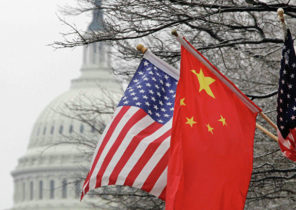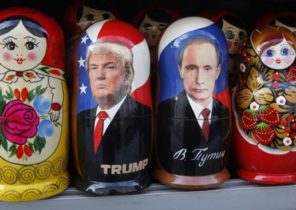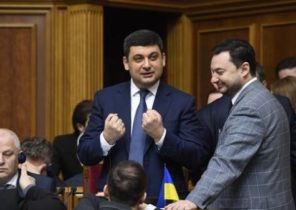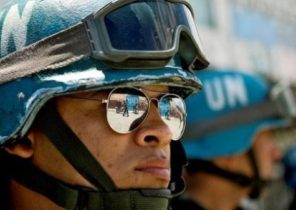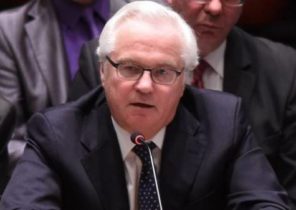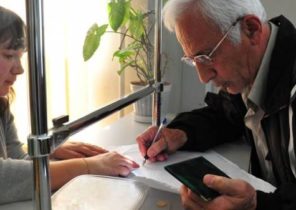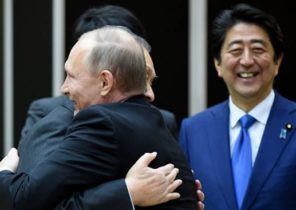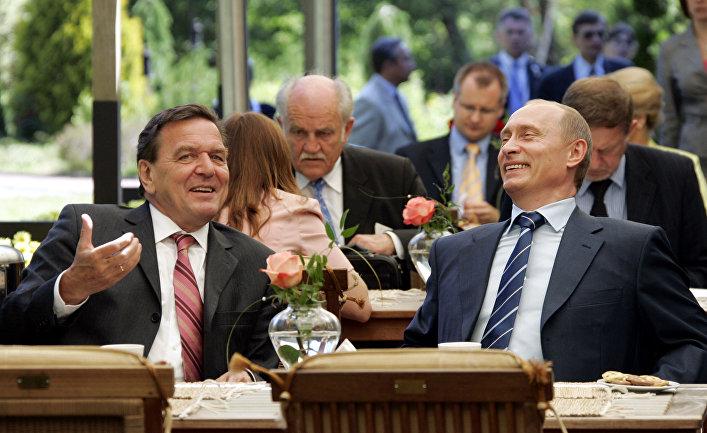
“If Putin likes Donald trump, I think it is advantage, not a disadvantage,” — said at a press conference on 11 January the new us President. But other American and European leaders, trying to establish a personal relationship with the Russian President and former KGB agent, is often faced with the fact that it does not always bring political dividends.
No one policy has failed to get the better of Vladimir Putin, which is both respectful and hostile to opponents such as German Chancellor Angela Merkel. Inside the country’s business elite faced with the fact that obedience is the only safe way to preserve their wealth and freedom. Here is a brief story about someone who tried to do business with Putin and failed — or succeeded.
Barack Obama
The President of the United States, 2009-2016 years
Hope
“I hope that we will be able to build a constructive relationship based on mutual respect and common interests, and on this basis we will move forward.” — March 3, 2009.
The first results
In the framework of the reset policy of Obama, the United States and Russia in 2010 signed a landmark agreement to control nuclear weapons. Russia has also agreed to enhanced transfer of military equipment and supplies to Afghanistan through its territory, which was a key priority for the United States.
What happened
When Putin in 2012 returned to the presidency, relations deteriorated, and the climax of this deterioration was the annexation of Crimea by Russia in 2014. In 2015, Russia broke the agreement on the Afghan transit and started to support Syrian President Bashar al-Assad in its fight against the rebels, who have helped US. Special services found out that Putin has approved the conduct of hacker attacks against the headquarters of Hillary Clinton, supported Barack Obama as his successor.
George Bush
The US President, 2001-2009
Hope
After the first meeting with Putin in June 2001, Bush said that he “felt his soul”, called it a “direct and credible”, and man, “deeply devoted to his country.”
The first results
Putin accepted the U.S. withdrawal from the ABM Treaty of 1972 and the first foreign leaders to call Bush after September 11. Later, he allowed NATO to transfer military equipment through Russian territory to Afghanistan.
What happened
When Putin invaded us ally Georgia in August 2008, the Bush opinion of Putin had changed dramatically, and he experienced a bitter disappointment.
Gerhard Schroeder
The Chancellor of Germany, 1998-2005
Hope
In 2004, he called Putin a “flawless Democrat”.
The first results
He established relations with Putin opposed the us invasion of Iraq in 2003, and gave consent to the laying of a new pipeline under the Baltic sea from Russia to Germany.
What happened
Soon after leaving the post of Chancellor in 2005, Schroeder began to work in the Russian state gas company Gazprom, triggering sharp criticism. In April 2014, at the peak of the Ukrainian crisis, he was photographed cuddling with Putin, who came to St. Petersburg for the celebration of the 70th of the birth of the shredder.
Angela Merkel
The Chancellor of Germany, 2005-present
Hope
“I am convinced that we will be able to expand our strategic partnership” — January 16, 2006.
The first results
Merkel was hoping for a business relationship with Putin, trying to avoid him of close ties that supported its predecessor. It completed the construction of the Baltic pipeline started by the shredder, through which Russian gas went directly to Germany. At the peak of the development of relations in 2013, the trade volume between the two countries has increased almost twice since its coming to power.
What happened
Relations deteriorated in 2014, when Merkel, feeling cheated by Putin regarding Ukraine, achieved from European sanctions against Russia. German intelligence chief warned that Russia may organize cyber-attacks in order to influence the outcome of elections in the current year, in which Merkel will have an intense struggle for another term.
Nicolas Sarkozy
The President of France, 2007-2012
Hope
Sarkozy called Putin a pragmatist even before the meeting in Moscow in 2007, noting that it helps them to “find common ground” on important international issues.
The first results
Sarkozy has played a key mediating role in the conclusion of an agreement with Putin on cease-fire after the Russian invasion of Georgia. This was a diplomatic triumph for France. Major French companies such as Renault, have concluded important deals in Russia.
What happened
Sarkozy, who failed to become a presidential candidate in the upcoming elections this spring, in recent years, openly sympathetic to Putin and even carries with it a private audience. His successor due to the Ukrainian crisis had to cancel a major agreement on the supply of French military equipment, Sarkozy signed with Putin.
Alexander Lukashenko
The President of Belarus, 1994-present
Hope
Creating with Russia, the Alliance made two of the country’s closest ally, Lukashenka regularly praises Putin.
The first results
Lukashenko managed to retain a degree of autonomy. It relies on Russia for energy resources to the billions of dollars and other subsidies that are vital to its economy, arranged according to the Soviet model. He played an important role as a mediator in the negotiations that led in 2015 to conclude a peace agreement aimed at ending the war in the East of Ukraine.
What happened
Belarus is located between Russia and the West, Lukashenka has managed to balance and keep balance between them. It receives funding from both parties and remains in power for 23 years.
Viktor Yanukovych
The President of Ukraine, 2010-2014
Hope
Putin openly supported Yanukovych, when he in 2004 he ran for President. But after his election victory began national protests against the numerous violations of the electoral process, and Yanukovych lost power.
The first results
While Yanukovych in 2010, has returned to the political arena, and then received billions of dollars of subsidies and other support to strengthen his power.
What happened
Attempts to balance between the West and Russia failed, when Yanukovych suddenly refused the agreement with the EU in 2014. This led to his overthrow as a result of street protests. He currently lives in exile in Russia.
Mikhail Khodorkovsky
Disgraced Russian businessman, philanthropist and former oligarch
Hope
In the past the richest man in Russia, former owner of oil company YUKOS, Khodorkovsky was fighting for political power, supporting the opposition and other parties.
The first results
YUKOS was the largest Russian oil company, and Khodorkovsky in 2003 was close to sell a large stake in Exxon.
What happened
Khodorkovsky spent ten years in prison on charges of tax evasion and embezzlement, which he calls politically motivated. In 2013, he was pardoned. Living in exile in London, Khodorkovsky is using the remnants of his fortune to Finance projects of civil society and for election observation, ensuring the departure of Putin.
Mikhail Fridman
Russian entrepreneur, a CEO and philanthropist
Hope
He received Putin’s approval for the deal in the amount of $ 7 billion for the creation of the oil company TNK-BP, which owns jointly with BP. Friedman stays away from politics and not incur the wrath of the Kremlin.
The first results
TNK-BP became one of the largest and most profitable Russian oil companies, “Alfa-Group” Friedman conducted an expansion and is now engaged in Finance, telecommunications and retail trade, and Friedman became one of the richest people in Russia.
What happened
Friedman’s so far so good. He and his Russian partners in 2013 allowed us to sell a stake in TNK-BP to the state oil company approximately $ 14 billion.
